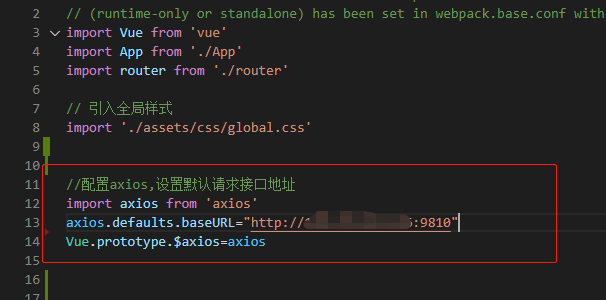- SQL笔记#数据更新
月吟荧静
SQL笔记sql笔记数据库
一、数据的插入(INSERT语句的使用方法)1、什么是INSERT首先通过CREATETABLE语句创建表,但创建的表中没有数据;再通过INSERT语句向表中插入数据。--创建表ProductInsCREATETABLEProductIns(product_idCHAR(4)NOTNULL,product_nameVARCHAR(100)NOTNULL,product_typeVARCHAR(32
- C++ STL std::vector 底层实现
zjkzjk7711
c++
C++STLstd::vector底层实现std::vector是C++STL中最常用的动态数组容器,其底层实现依赖于连续内存块,并采用动态扩容策略来管理内存。1.std::vector的底层数据结构std::vector内部维护三个指针templateclassvector{private:T*_start;//指向数据存储的起始位置T*_finish;//指向数据存储的末尾(size)T*_e
- 使用 acme.sh 申请和管理 免费SSL 证书:告别 certbot 的繁琐
lihuang319
linuxssl
使用acme.sh申请和管理SSL证书:告别certbot的繁琐引言介绍SSL证书的重要性传统certbot的痛点(如live目录、复杂的配置)acme.sh的优势(轻量、灵活、自动化)一、acme.sh简介什么是acme.shacme.sh的主要特点支持多种DNS服务商自动化续期直接指定证书路径无需额外依赖二、安装acme.sh基本安装curlhttps://get.acme.sh|sh-sem
- Llama.cpp 服务器安装指南(使用 Docker,GPU 专用)
田猿笔记
AI高级应用llama服务器dockerllama.cpp
前置条件在开始之前,请确保你的系统满足以下要求:操作系统:Ubuntu20.04/22.04(或支持Docker的Linux系统)。硬件:NVIDIAGPU(例如RTX4090)。内存:16GB+系统内存,GPU需12GB+显存(RTX4090有24GB)。存储:15GB+可用空间(用于源码、镜像和模型文件)。网络:需要互联网连接以下载源码和依赖。软件:已安装并运行Docker。已安装NVIDIA
- spring cloud alibaba版本对应表(2024/6/26)
翻身仗
springcloudspringboot中间件
毕业版本依赖关系(推荐使用)由于SpringBoot3.0,SpringBoot2.7~2.4和2.4以下版本之间变化较大,目前企业级客户老项目相关SpringBoot版本仍停留在SpringBoot2.4以下,为了同时满足存量用户和新用户不同需求,社区以SpringBoot3.0和2.4分别为分界线,同时维护2022.x、2021.x、2.2.x三个分支迭代。如果不想跨分支升级,如需使用新特性,
- Composer如何通过GitHub Personal Access Token安装私有包:完整教程
lihuang319
composergithubphp
使用Composer安全管理您的PHP私有依赖包一、前言在PHP开发中,我们经常需要将内部工具包托管为私有仓库。传统的账号密码验证方式存在安全隐患,而GitHubPersonalAccessToken(PAT)提供了一种更安全的鉴权方案。本文将通过4个核心步骤+3个避坑指南,手把手教您在Composer中优雅地使用PAT安装私有包。二、为什么要用PAT?安全性:细粒度权限控制(可设置过期时间/单仓
- Spring Boot @Component注解介绍
CnLg.NJ
Javaspringboot后端java
@Component是Spring中的一个核心注解,用于声明一个类为Spring管理的组件(Bean)。它是一个通用的注解,可以用于任何层次的类(如服务层、控制器层、持久层等)。通过@Component注解,Spring会自动检测并注册该类为一个Bean,从而实现依赖注入和生命周期管理。1.@Component的作用@Component是一个元注解,它本身被@Configuration、@Serv
- Zookeeper(78)Zookeeper的性能优化有哪些方法?
辞暮尔尔-烟火年年
微服务zookeeper性能优化分布式
Zookeeper的性能优化涉及多个方面,包括硬件配置、Zookeeper本身的配置、客户端的使用方式以及网络环境。以下是一些常见的性能优化方法及详细的代码示例。1.硬件配置磁盘:使用高性能的SSD磁盘,确保低延迟和高I/O吞吐量。内存:确保有足够的内存以避免频繁的垃圾回收(GC)。CPU:使用多核CPU,以便更好地处理并发请求。2.Zookeeper配置优化配置参数优化以下是一些关键的Zooke
- 最通用的跨平台引擎:ShiVa 3D引擎
pizi0475
图形图像其它文章图形引擎游戏引擎引擎跨平台脚本服务器sslsoap
ShiVa3D引擎是最通用的跨平台引擎,可以在Web浏览器运行并且也支持Windows,Mac,Linux,Wii,iPhone,iPad,Android,WebOS和AirplaySDK。该引擎支持SSL–securized插件扩展,很像PhysX引擎,FMOD声音库,ARToolkit和ScaleformHUD引擎。ClassicGeometry经典的图形处理支持多边形网,其中包括:-静态网格
- React vs Vue3深度对比与使用场景分析
匹马夕阳
VUE技术集锦react.js前端前端框架
在前端开发领域,React和Vue3是两个备受瞩目的框架。它们都提供了强大的功能和灵活的开发方式,但各自的设计理念、使用方式和适用场景有所不同。本文将深入探讨React和Vue3的区别,通过代码示例和具体的使用场景,帮助开发者更好地理解并选择适合自己的框架。一、核心概念与设计理念1.ReactReact是由Facebook开发的一个JavaScript库,主要用于构建用户界面。它的核心理念是组件化
- DeepSeek R1 简单指南:架构、训练、本地部署和硬件要求
爱喝白开水a
人工智能AI大模型DeepSeekR1DeepSeek算法人工智能训练大模型部署
DeepSeek推出的LLM推理新策略DeepSeek最近发表的论文DeepSeek-R1中介绍了一种创新的方法,通过强化学习(RL)提升大型语言模型(LLM)的推理能力。这项研究在如何仅依靠强化学习而不是过分依赖监督式微调的情况下,增强LLM解决复杂问题的能力上,取得了重要进展。DeepSeek-R1技术概述模型架构DeepSeek-R1不是一个单独的模型,而是包括DeepSeek-R1-Zer
- Visual Studio插件大全推荐
ysdysyn
visualstudioide
给大家推荐一下VisualStudio插件,它们能够提升开发效率、改善代码质量,并增强开发体验:开发效率提升类Resharper一款强大的生产力工具,提供代码自动完成、重构、代码检查、导航等功能。能深入理解代码结构,给出更准确的补全建议和错误检查,帮助开发者编写高质量代码,但比较占用内存.CodeRush具有丰富的代码生成模板和快捷方式,可快速生成属性、方法、构造函数等代码结构,还提供智能代码导航
- UML各种图的定义及组成元素(期末复习用)
难啊楠
umljava开发语言
UML各种图的定义及组成元素用例图定义用例图是表示一个系统中的用例与参与者关系之间的图。组成元素参与者用例关系关联关系泛化关系依赖关系类图定义类图是显示一组类、接口、协作以及它们之间关系的图。组成元素类接口协作依赖关系泛化关系实现关系关联关系对象图定义对象图显示了某一时刻的一组对象及它们之间的关系。组成元素对象链对象图与类图之间的关系!!!!!!相同点:两者都是面向对象建模工具,对象是类的实例。两
- pip 与当前python环境版本不匹配,python安装库成功,还是提示没有该库
灿灿的金
pythonpip开发语言
解决pip版本不一致在使用pip命令前加上python-m即可让pip版本和当前python版本一致因此,当使用pip安装依赖时,需要在命令前添加python-m来配合使用,比如安装一个pillow库,命令如下python-mpipinstallpillow你同时安装了python2和python3pipinstallPillow可能下载的是python3的库,而你代码跑的是python2可以通过
- The Rust Programming Language 学习 (四)
rust结构体c编程语言
结构体struct,或者structure,是一个自定义数据类型,允许你命名和包装多个相关的值,从而形成一个有意义的组合。如果你熟悉一门面向对象语言,struct就像对象中的数据属性。定义并实例化结构体和元组一样,结构体的每一部分可以是不同类型。但不同于元组,结构体需要命名各部分数据以便能清楚的表明其值的意义。由于有了这些名字,结构体比元组更灵活:不需要依赖顺序来指定或访问实例中的值。定义结构体,
- UML各种图形及作用
Wuli波板糖
UMLUML
分类图的名字介绍结构型图静态图类图(ClassDiagram)类图用于定义系统中的类,包括描述类之间的联系(如:关联、依赖、聚合)以及类的内部结构,即类的属性和操作。因此类图是描述系统中类的静态结构,即它所描述的是一种静态关系,在系统的整个生命周期都是有效的。对象图(ObjectDiagram)对象图所使用的表示符号与类图几乎完全相同,它们的不同点在于对象图只是显示类的对象实例,而不是实际的类。一
- 【python 机器学习】sklearn ROC曲线与AUC指标
人才程序员
杂谈机器学习pythonsklearn人工智能深度学习神经网络目标检测
文章目录sklearnROC曲线与AUC指标1.什么是ROC曲线与AUC?通俗介绍:学术解释:2.在`sklearn`中绘制ROC曲线与计算AUC2.1导入库和数据2.2加载数据集2.3训练模型2.4预测概率2.5计算FPR、TPR和AUC2.6绘制ROC曲线3.解析ROC曲线和AUC值4.总结sklearnROC曲线与AUC指标在机器学习中,评估分类模型的性能不仅仅依赖于准确率,还需要使用一些更
- python操作kafka
您懂我意思吧
python开发kafka分布式python
一、参考阿里云的官方链接:使用PythonSDK接入Kafka收发消息_云消息队列Kafka版(Kafka)-阿里云帮助中心二、安装python环境三、添加python依赖库pipinstallconfluent-kafka==1.9.2四、新建一个setting.py文件配置信息kafka_setting={'sasl_plain_username':'XXX',#如果是默认接入点实例,请删除该
- Python异步编程-asyncio详解
我爱让机器学习
python开发语言asyncio异步
目录asyncio简介示例什么是asyncio?适用场景APIasyncio的使用可等待对象什么是可等待对象?协程对象任务对象Future对象协程什么是协程?基本使用运行协程Task什么是Task?创建Task取消TaskTask异常获取Task回调TaskGroup什么是TaskGroup?为什么使用TaskGroup?创建任务异常处理同步任务完成asyncio简介示例首先,我们来看一个简单的H
- Python -- asyncio库
鹿夏
asyncio协程前言问题的引出多线程版本多进程版本生成器版本事件循环协程FutureTask任务协程的使用回调的使用多个任务执行使用回调,如下新语法TCPEchoServer举例aiohttp库安装文档开发前言3.4版本加入标准库。asyncio底层基于selectors实现,看似库,其实就是个框架,包含异步IO、事件循环、协程、任务等内容问题的引出defa():forxinrange(3):p
- day58 第十一章:图论part08
mvufi
图论算法数据结构
拓扑排序精讲关键:先找到入度为0的节点,把这些节点加入队列/结果,然后依次循环再找。#include#include#include#includeusingnamespacestd;intmain(){intm,n,s,t;cin>>n>>m;vectorinDegree(n,0);//记录每个文件的入度unordered_map>umap;//记录文件依赖关系vectorresult;//记录
- 镜像解决,向量数据库Milvus报错
zwzscnds
dockermilvus
MilvusMilvus是一款开源的向量数据库,具有高度的灵活性、稳定可靠性以及高速查询等特点。它支持针对TB级向量的增删改操作和近实时查询,适用于大规模向量数据的存储和检索。Milvus的官网:https://milvus.ioGithub上Milvus的链接:https://github.com/milvus-ioDockerDocker是一种容器化技术,它允许开发者将应用程序及其依赖项打包到
- 向量数据库实战介绍
Zhank10
数据库
本文将介绍三种常用的向量数据库:faiss,Milvus和Qdrant,并给出一个具体的使用例子。向量数据库(VectorDatabase)是一种专门用于存储、管理、查询、检索向量的数据库,主要应用于人工智能、机器学习、数据挖掘等领域。在向量数据库中,数据以向量的形式进行存储和处理,需要将原始的非向量型数据转化为向量表示(比如文本使用Embedding技术获得其表征向量)。这种数据库能够高效地进行
- Vue的单元测试和端到端测试:确保组件可靠性与应用完整性
哎 你看
vuevue.js单元测试前端
引言在软件开发过程中,测试是保证代码质量和应用稳定性的关键环节。Vue.js作为流行的前端框架,提供了一套完善的测试工具和生态系统,支持开发者进行单元测试和端到端测试。本文将深入探讨如何为Vue组件编写单元测试,并讨论如何使用Cypress等工具进行端到端测试。单元测试1.单元测试的概念单元测试是针对程序中最小的可测试单元进行检查和验证的过程,通常关注函数或方法级别的测试。2.Vue组件的单元测试
- 使用ArcGIS和ArcGISLoader进行地理信息处理
scaFHIO
arcgispython
ArcGIS是由Esri开发和维护的地理信息系统(GIS)软件家族,包括客户端、服务器和在线解决方案。对于开发者来说,Python库arcgis提供了强大的功能,支持矢量和栅格分析、地理编码、制图、路径规划等。此外,它还能够管理用户、组和信息项,并可访问Esri及其他权威来源提供的即用型地图和地理数据,也支持自有数据的使用。1.技术背景介绍ArcGIS是一款广泛应用于地理信息系统中的专业工具,它可
- Vue.js 组件化开发:从入门到进阶
小李学软件
vue学习前端框架vue.js前端javascript前端框架
Vue.js组件化开发:从入门到进阶大家好,今天我们来聊一聊Vue.js的“组件化开发”。目前Vue开发已经相对成熟了,相信很多朋友对组件化开发并不陌生。如果你对组件化开发已经非常熟悉,看到我的文章,欢迎点个支持一下。如果你是刚入门,我强烈建议学习一下哦。如果你想巩固Vue组件化的知识,非常推荐来学习。一、什么是组件化开发?在进入正题之前,想问大家一个问题:你有没有拼过乐高?如果有的话,你就会知道
- 使用 Python 实现基于 AGA8 GERG - 2008 方程计算掺氢天然气压缩因子的示例代码
go5463158465
python算法python算法开发语言
AGA8GERG-2008方程是用于计算天然气混合物热力学性质的一种方法,下面是一个使用Python实现基于AGA8GERG-2008方程计算掺氢天然气压缩因子的示例代码。需要注意的是,AGA8GERG-2008方程非常复杂,完整实现需要大量的系数和详细的计算步骤。这里我们简化了部分过程,使用CoolProp库来完成计算,因为CoolProp已经实现了GERG-2008方程。安装依赖库首先确保你已
- Vue.js组件开发:从基础到进阶
码上飞扬
vue.js
在现代前端开发中,Vue.js因其简洁、灵活和易上手的特点,成为了众多开发者首选的框架之一。组件化是Vue.js的核心思想之一,它让我们能够更高效、模块化地开发应用。在本文中,我们将从Vue.js的组件开发的基础知识开始,逐步探索如何通过Vue.js进行高效的组件化开发。一、Vue.js组件的基础Vue.js中的组件可以理解为一个具有特定功能的代码块,它通常包含视图(HTML)、样式(CSS)和逻
- Spring--IOC控制反转与DI依赖注入的三种方式
wildyuhao
Javaspringmaveniocjava
Spring--IOC控制反转与DI依赖注入的三种方式1.setter方法注入2.构造器注入3.接口注入Spring的核心思想是IOC和AOP,IOC即控制反转,包括依赖注入和依赖查找,最主要使用的即依赖注入DI。通常情况下,我们创建对象时,是通过new关键字主动进行的;而DI则是在创建对象时,只设置配置文件,由Spring统一创建对象并调用。这也就是控制反转的由来。接下来本文将重点介绍依赖注入的
- 深入理解 Spring IoC 与 DI:控制反转与依赖注入解析
代码江
Springspringjava后端
前言:在接触Spring框架之前,通常我们会在main方法或其他业务逻辑中手动new对象,然后调用这些对象的方法来完成任务。手动创建对象的方式意味着我们自己掌握了对象的控制权。然而,在Spring中,我们不再直接在代码中手动创建对象,而是将对象的创建、管理、依赖注入等职责交给了Spring容器。Spring框架通过IoC(控制反转)和DI(依赖注入)来实现这一点。大家伙,这次封面是我把标题发给ai
- 遍历dom 并且存储(将每一层的DOM元素存在数组中)
换个号韩国红果果
JavaScripthtml
数组从0开始!!
var a=[],i=0;
for(var j=0;j<30;j++){
a[j]=[];//数组里套数组,且第i层存储在第a[i]中
}
function walkDOM(n){
do{
if(n.nodeType!==3)//筛选去除#text类型
a[i].push(n);
//con
- Android+Jquery Mobile学习系列(9)-总结和代码分享
白糖_
JQuery Mobile
目录导航
经过一个多月的边学习边练手,学会了Android基于Web开发的毛皮,其实开发过程中用Android原生API不是很多,更多的是HTML/Javascript/Css。
个人觉得基于WebView的Jquery Mobile开发有以下优点:
1、对于刚从Java Web转型过来的同学非常适合,只要懂得HTML开发就可以上手做事。
2、jquerym
- impala参考资料
dayutianfei
impala
记录一些有用的Impala资料
1. 入门资料
>>官网翻译:
http://my.oschina.net/weiqingbin/blog?catalog=423691
2. 实用进阶
>>代码&架构分析:
Impala/Hive现状分析与前景展望:http
- JAVA 静态变量与非静态变量初始化顺序之新解
周凡杨
java静态非静态顺序
今天和同事争论一问题,关于静态变量与非静态变量的初始化顺序,谁先谁后,最终想整理出来!测试代码:
import java.util.Map;
public class T {
public static T t = new T();
private Map map = new HashMap();
public T(){
System.out.println(&quo
- 跳出iframe返回外层页面
g21121
iframe
在web开发过程中难免要用到iframe,但当连接超时或跳转到公共页面时就会出现超时页面显示在iframe中,这时我们就需要跳出这个iframe到达一个公共页面去。
首先跳转到一个中间页,这个页面用于判断是否在iframe中,在页面加载的过程中调用如下代码:
<script type="text/javascript">
//<!--
function
- JAVA多线程监听JMS、MQ队列
510888780
java多线程
背景:消息队列中有非常多的消息需要处理,并且监听器onMessage()方法中的业务逻辑也相对比较复杂,为了加快队列消息的读取、处理速度。可以通过加快读取速度和加快处理速度来考虑。因此从这两个方面都使用多线程来处理。对于消息处理的业务处理逻辑用线程池来做。对于加快消息监听读取速度可以使用1.使用多个监听器监听一个队列;2.使用一个监听器开启多线程监听。
对于上面提到的方法2使用一个监听器开启多线
- 第一个SpringMvc例子
布衣凌宇
spring mvc
第一步:导入需要的包;
第二步:配置web.xml文件
<?xml version="1.0" encoding="UTF-8"?>
<web-app version="2.5"
xmlns="http://java.sun.com/xml/ns/javaee"
xmlns:xsi=
- 我的spring学习笔记15-容器扩展点之PropertyOverrideConfigurer
aijuans
Spring3
PropertyOverrideConfigurer类似于PropertyPlaceholderConfigurer,但是与后者相比,前者对于bean属性可以有缺省值或者根本没有值。也就是说如果properties文件中没有某个bean属性的内容,那么将使用上下文(配置的xml文件)中相应定义的值。如果properties文件中有bean属性的内容,那么就用properties文件中的值来代替上下
- 通过XSD验证XML
antlove
xmlschemaxsdvalidationSchemaFactory
1. XmlValidation.java
package xml.validation;
import java.io.InputStream;
import javax.xml.XMLConstants;
import javax.xml.transform.stream.StreamSource;
import javax.xml.validation.Schem
- 文本流与字符集
百合不是茶
PrintWrite()的使用字符集名字 别名获取
文本数据的输入输出;
输入;数据流,缓冲流
输出;介绍向文本打印格式化的输出PrintWrite();
package 文本流;
import java.io.FileNotFound
- ibatis模糊查询sqlmap-mapping-**.xml配置
bijian1013
ibatis
正常我们写ibatis的sqlmap-mapping-*.xml文件时,传入的参数都用##标识,如下所示:
<resultMap id="personInfo" class="com.bijian.study.dto.PersonDTO">
<res
- java jvm常用命令工具——jdb命令(The Java Debugger)
bijian1013
javajvmjdb
用来对core文件和正在运行的Java进程进行实时地调试,里面包含了丰富的命令帮助您进行调试,它的功能和Sun studio里面所带的dbx非常相似,但 jdb是专门用来针对Java应用程序的。
现在应该说日常的开发中很少用到JDB了,因为现在的IDE已经帮我们封装好了,如使用ECLI
- 【Spring框架二】Spring常用注解之Component、Repository、Service和Controller注解
bit1129
controller
在Spring常用注解第一步部分【Spring框架一】Spring常用注解之Autowired和Resource注解(http://bit1129.iteye.com/blog/2114084)中介绍了Autowired和Resource两个注解的功能,它们用于将依赖根据名称或者类型进行自动的注入,这简化了在XML中,依赖注入部分的XML的编写,但是UserDao和UserService两个bea
- cxf wsdl2java生成代码super出错,构造函数不匹配
bitray
super
由于过去对于soap协议的cxf接触的不是很多,所以遇到了也是迷糊了一会.后来经过查找资料才得以解决. 初始原因一般是由于jaxws2.2规范和jdk6及以上不兼容导致的.所以要强制降为jaxws2.1进行编译生成.我们需要少量的修改:
我们原来的代码
wsdl2java com.test.xxx -client http://.....
修改后的代
- 动态页面正文部分中文乱码排障一例
ronin47
公司网站一部分动态页面,早先使用apache+resin的架构运行,考虑到高并发访问下的响应性能问题,在前不久逐步开始用nginx替换掉了apache。 不过随后发现了一个问题,随意进入某一有分页的网页,第一页是正常的(因为静态化过了);点“下一页”,出来的页面两边正常,中间部分的标题、关键字等也正常,唯独每个标题下的正文无法正常显示。 因为有做过系统调整,所以第一反应就是新上
- java-54- 调整数组顺序使奇数位于偶数前面
bylijinnan
java
import java.util.Arrays;
import java.util.Random;
import ljn.help.Helper;
public class OddBeforeEven {
/**
* Q 54 调整数组顺序使奇数位于偶数前面
* 输入一个整数数组,调整数组中数字的顺序,使得所有奇数位于数组的前半部分,所有偶数位于数组的后半
- 从100PV到1亿级PV网站架构演变
cfyme
网站架构
一个网站就像一个人,存在一个从小到大的过程。养一个网站和养一个人一样,不同时期需要不同的方法,不同的方法下有共同的原则。本文结合我自已14年网站人的经历记录一些架构演变中的体会。 1:积累是必不可少的
架构师不是一天练成的。
1999年,我作了一个个人主页,在学校内的虚拟空间,参加了一次主页大赛,几个DREAMWEAVER的页面,几个TABLE作布局,一个DB连接,几行PHP的代码嵌入在HTM
- [宇宙时代]宇宙时代的GIS是什么?
comsci
Gis
我们都知道一个事实,在行星内部的时候,因为地理信息的坐标都是相对固定的,所以我们获取一组GIS数据之后,就可以存储到硬盘中,长久使用。。。但是,请注意,这种经验在宇宙时代是不能够被继续使用的
宇宙是一个高维时空
- 详解create database命令
czmmiao
database
完整命令
CREATE DATABASE mynewdb USER SYS IDENTIFIED BY sys_password USER SYSTEM IDENTIFIED BY system_password LOGFILE GROUP 1 ('/u01/logs/my/redo01a.log','/u02/logs/m
- 几句不中听却不得不认可的话
datageek
1、人丑就该多读书。
2、你不快乐是因为:你可以像猪一样懒,却无法像只猪一样懒得心安理得。
3、如果你太在意别人的看法,那么你的生活将变成一件裤衩,别人放什么屁,你都得接着。
4、你的问题主要在于:读书不多而买书太多,读书太少又特爱思考,还他妈话痨。
5、与禽兽搏斗的三种结局:(1)、赢了,比禽兽还禽兽。(2)、输了,禽兽不如。(3)、平了,跟禽兽没两样。结论:选择正确的对手很重要。
6
- 1 14:00 PHP中的“syntax error, unexpected T_PAAMAYIM_NEKUDOTAYIM”错误
dcj3sjt126com
PHP
原文地址:http://www.kafka0102.com/2010/08/281.html
因为需要,今天晚些在本机使用PHP做些测试,PHP脚本依赖了一堆我也不清楚做什么用的库。结果一跑起来,就报出类似下面的错误:“Parse error: syntax error, unexpected T_PAAMAYIM_NEKUDOTAYIM in /home/kafka/test/
- xcode6 Auto layout and size classes
dcj3sjt126com
ios
官方GUI
https://developer.apple.com/library/ios/documentation/UserExperience/Conceptual/AutolayoutPG/Introduction/Introduction.html
iOS中使用自动布局(一)
http://www.cocoachina.com/ind
- 通过PreparedStatement批量执行sql语句【sql语句相同,值不同】
梦见x光
sql事务批量执行
比如说:我有一个List需要添加到数据库中,那么我该如何通过PreparedStatement来操作呢?
public void addCustomerByCommit(Connection conn , List<Customer> customerList)
{
String sql = "inseret into customer(id
- 程序员必知必会----linux常用命令之十【系统相关】
hanqunfeng
Linux常用命令
一.linux快捷键
Ctrl+C : 终止当前命令
Ctrl+S : 暂停屏幕输出
Ctrl+Q : 恢复屏幕输出
Ctrl+U : 删除当前行光标前的所有字符
Ctrl+Z : 挂起当前正在执行的进程
Ctrl+L : 清除终端屏幕,相当于clear
二.终端命令
clear : 清除终端屏幕
reset : 重置视窗,当屏幕编码混乱时使用
time com
- NGINX
IXHONG
nginx
pcre 编译安装 nginx
conf/vhost/test.conf
upstream admin {
server 127.0.0.1:8080;
}
server {
listen 80;
&
- 设计模式--工厂模式
kerryg
设计模式
工厂方式模式分为三种:
1、普通工厂模式:建立一个工厂类,对实现了同一个接口的一些类进行实例的创建。
2、多个工厂方法的模式:就是对普通工厂方法模式的改进,在普通工厂方法模式中,如果传递的字符串出错,则不能正确创建对象,而多个工厂方法模式就是提供多个工厂方法,分别创建对象。
3、静态工厂方法模式:就是将上面的多个工厂方法模式里的方法置为静态,
- Spring InitializingBean/init-method和DisposableBean/destroy-method
mx_xiehd
javaspringbeanxml
1.initializingBean/init-method
实现org.springframework.beans.factory.InitializingBean接口允许一个bean在它的所有必须属性被BeanFactory设置后,来执行初始化的工作,InitialzingBean仅仅指定了一个方法。
通常InitializingBean接口的使用是能够被避免的,(不鼓励使用,因为没有必要
- 解决Centos下vim粘贴内容格式混乱问题
qindongliang1922
centosvim
有时候,我们在向vim打开的一个xml,或者任意文件中,拷贝粘贴的代码时,格式莫名其毛的就混乱了,然后自己一个个再重新,把格式排列好,非常耗时,而且很不爽,那么有没有办法避免呢? 答案是肯定的,设置下缩进格式就可以了,非常简单: 在用户的根目录下 直接vi ~/.vimrc文件 然后将set pastetoggle=<F9> 写入这个文件中,保存退出,重新登录,
- netty大并发请求问题
tianzhihehe
netty
多线程并发使用同一个channel
java.nio.BufferOverflowException: null
at java.nio.HeapByteBuffer.put(HeapByteBuffer.java:183) ~[na:1.7.0_60-ea]
at java.nio.ByteBuffer.put(ByteBuffer.java:832) ~[na:1.7.0_60-ea]
- Hadoop NameNode单点问题解决方案之一 AvatarNode
wyz2009107220
NameNode
我们遇到的情况
Hadoop NameNode存在单点问题。这个问题会影响分布式平台24*7运行。先说说我们的情况吧。
我们的团队负责管理一个1200节点的集群(总大小12PB),目前是运行版本为Hadoop 0.20,transaction logs写入一个共享的NFS filer(注:NetApp NFS Filer)。
经常遇到需要中断服务的问题是给hadoop打补丁。 DataNod
